Sum Of 1n2 From 1 To Infinity

Basel Problem Wikipedia

Using The Ratio Test

Basel Problem Wikipedia
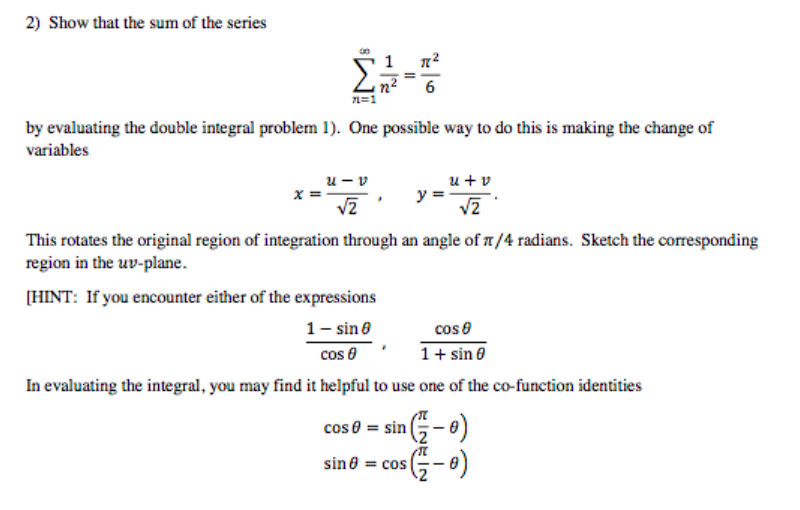
Solved Show That The Sum Of The Series Sigma N 1 Infini Chegg Com

Basel Problem Wikipedia

Answered Determine The Sum Of The Series 1 N N Bartleby
First of all, the infinite sum of all the natural number is not equal to -1/12.

Sum of 1n2 from 1 to infinity. In fact, you can make as large as you like by choosing large enough. (k!/k 3) check_circle Expert Answer. Finding the Sum, Example 1 - Duration:.
We have to sum. Sum to infinity of 1/(1+n^2) « on:. - Voiceover Let's say that we have an infinite series S so that's the sum from n = 1 to infinity of a sub n.
For example, to determine the convergence or divergence of \eqref. In zeta function regularization, the series ∑ = ∞ is replaced by the series ∑ = ∞ −.The latter series is an example of a Dirichlet series.When the real part of s is greater than 1, the Dirichlet series converges, and its sum is the Riemann zeta function ζ(s).On the other hand, the Dirichlet series diverges when the real part of s is less than or equal to 1, so, in particular, the. When n is 1, it's 0 squared plus 1 squared.
Here is another way to proceed. The ratio test says the sum is convergent if lim an+1/an < 1. 6, 1.2, 0.24 … asked Sep 8, 18 in Mathematics by Sagarmatha ( 54.3k points) sequences and series.
So that is 1. KB's answer is excellent. Now it's also important that the second thing does not always imply the first.
Compute answers using Wolfram's breakthrough technology & knowledgebase, relied on by millions of students & professionals. The Basel problem is a problem in mathematical analysis with relevance to number theory, first posed by Pietro Mengoli in 1650 and solved by Leonhard Euler in 1734, and read on 5 December 1735 in The Saint Petersburg Academy of Sciences. Σ Ln(1- 1/n2)(Find The Sum Of The Series From N=2 To Infinity) Question:.
The sum from k=1 to infinity of:. Asked Sep 11,. The ratio test for convergent and divergent are:.
Calculus 2 Lecture 9.2:. In this case, an+1/an = (n!)^2/((n+1)!)^2 = 1/(n+1)^2 -> 0. I have to determine if the series (sum symbol) (n=1 to infinity) 1 / n(n+2) is convergent or not, and if it is, what is its limit.
Adding up the first 5 or 6 terms suggests that it converges to 2e. This is the sum of (3^n +1)/5^n from n=0 to infinity. Since {eq}\sum \dfrac{1}{n^p} {/eq} is a convergent series if p>1.
Click here👆to get an answer to your question ️ Sum 1 + 3x + 5x2 + 7x3 + 9x4 +. You could also have used the comparison test if you remember that the sum (1/n^2) is convergent. We're going to go on and on and on forever.
So that's just 0. Therefore, by the comparison test, the given series is a convergent series. The exercise was to evaluate sum(1 to oo) 1/(n^2+a^2) for a>0.
Asked Nov 25, 19. If the sum of the infinity of the series 44 3+ 5r + 7r2+. We'd just stop right over there.
Asked • 10/28/16 I need help on this problem. Using the integral test, how do you show whether #sum 1/(n^2+1)# diverges. Asked by Sarah on May 8, 12;.
What is the sum of an infinite series of 1/n when n = 1,2,3?. Compute n = 1 ∑ ∞ n 2 + 1 1. Sum to infinity of 1/(1+n^2) (Read 3904 times) NickH Senior Riddler Gender:.
In this video (another Peyam Classic), I present an unbelievable theorem with an unbelievable consequence. So that's 1 plus 4, which is 5. Using the integral test, how do you show whether #sum 1/(n(lnn)^2) # diverges or converges from n=1 to infinity?.
Going to infinity means that you can just keep adding paired terms that equal 0 in this way, so there seems to be a problem with infinity and making the sum make sense. Does sum 1/n^2 converge?. Read 56 answers by scientists with 51 recommendations from their colleagues to the question asked by Kottakkaran Sooppy Nisar on May 5, 16.
\begin{equation} \label{ptwoseries} \sum_{n=1}^\infty \frac{1}{n^2} = \frac{1}{1^2}+ \frac{1}{2^2} + \frac{1}{3^2} + \frac{1}{4^2} + \cdots \end{equation} The Integral Test compares an infinite series to an improper integral in order to determine convergence or divergence. Calculus Tests of Convergence / Divergence Integral Test for Convergence of an Infinite Series. Compute ∑ n = 1 ∞ 1 n 2 + 1.
Previous question Next question Get more help from Chegg. In the ratio test, if our answer is less than 1, it converges. The infinite sum of 1/n^2 is a convergent sum, i.e.
Algebra Q&A Library If the sum of the infinity of the series 44 3+ 5r + 7r2+. If the sum to infinity of the series `1+2r+3r^2+4r^3+` is 9/4, then value of `r` is `1//2` b. 1.052, which is still reasonably under the actual sum 1.077 (to three decimal places) from my answer quoted above.
Now use the formula S= a/(1-r) for infinite sums where a is the first term and r is the ratio for successive terms. So the series is clearly convergent. I understand the answer is divergence or the sum is infinity, but not why, especially since the terms eventually go to 0.
Since arctann le pi/2, we have {arctann}/n^{1.2} le {pi/2}/n^{1.2}. Well, it's bigger than e and converges by the ratio test. Given that the series the summation from n=1 to infinity of (-1)^(n+1)/√n is convergent, find a value of n for which the nth partial sum is guaranteed to approximate the sum of the series to two decimal places.
Show that the series 2/(n^2-1) from n=2 to infinity is convergent, and find its sum. For math, science, nutrition, history. When n is 2, it's 0 squared plus 1 squared plus 2 squared.
If the lim as n->infinity of a(sub n)=0, then the sum from n=1 to infinity of a(sub n) converges i said this was true because I know that if a (sub n) does NOT=0, it diverges 2. Get 1:1 help now from expert Calculus tutors Solve it with our calculus problem solver and calculator. The formula for the sum of a geometric series is a/1-r:.
But not what the sum of the series is. As the limit n -> infinity. Compute S_9 and S_10, and use these values to find bounds on the sum of the series.
You can easily convince yourself of this by tapping into your calculator the partial sums. The reduce as n methods infinity of (n+a million)/(2n-3) is a million/2. Homework Statement \\sum_1^\\infty \\frac{n^2}{n!} = The Attempt at a Solution Context:.
Infinity S = SUM 1/(2*n-1)^2 n=1 This can be shown to be identical to the double integral 1 1 S = INTEGRAL INTEGRAL 1/(1-x^2*y^2) dy dx, 0 0 using the same method. In the book, the answer is "3/4". I hope that this was helpful.
The trick is to compute the sum of the reciprocals of the squares of the odd numbers only:. Σ Ln(1- 1/n2)(Find The Sum Of The Series From N=2 To Infinity) This problem has been solved!. 1 / n 2 2.
- Week 2 - Lecture 11 - Sequences and Series - Duration:. In mathematics, the infinite series 1 / 2 + 1 / 4 + 1 / 8 + 1 / 16 + ··· is an elementary example of a geometric series that converges absolutely. Sum of (3/5)^n + sum of (1/5)^n from n=0 to infinity.
TRUE OR FALSE 1. Sum_{n = 1}^{infinity} 24 / { n (n + 2)} By signing up, you'll get thousands of step-by-step. When n is 3, now we go all the.
If it's greater than 1, it diverges. 1 Answer Jim H Sep 1, 15 This may be a "trick question". Lim <1 And lor lim ах fullscreen.
It should be the sum from i equals 0 to n of i squared. Approximate the sum of the series correct to four decimal places. Is , then find the 9 value of r.
So when n is 0-- well, that's just going to be 0 squared. That's good enough for a. Aug 25 th, 04, 7:27am.
A variation of the method you suggest is actually successful in computing SUM 1/n^2. We could write it out a sub 1 plus a sub 2 and we're just going to go on and on and on for infinity. This can be expanded to:.
The sum of all natural numbers, from one to infinity, is not a. 2/(n^2+3n), n=1 to infinity. Supercharge your algebraic intuition and problem solving skills!.
Become a member and unlock all Study Answers. The point here is that if you pair the terms "1" and "-1" in different parts of the sum, you seem to get a different answer, which is only true because the sum goes to infinity. Let an = 1/(n!)^2.
The above sum is just with a = 1. Bear in mind, at the same time as taking limits with n coming near infinity, if the the utmost exponent of the numerator equals that of the denominator, the reduce is merely the ratio of the coefficients. O.k., so this simplifies to the sum((3/6)^n) + sum ((2/6)^n) from n=1 to infinity, simplifying again to ratios of 1/2 and 1/3.
Because the ranges in this difficulty are a million on the genuine. The geometric series on the real line. \text {Compute } \displaystyle\sum_{n=1}^{\infty} \dfrac {1}{n^2+1}.
Practice Math GRE question I don't know how to answer. The sum from k=1 to infinity of:. Sum from 1 to infinity of (1+n)/((n)2^n) ~ is this right?.
It adds up to a finite total. If the sum from n=1 to infinity of a(sub n) converges and. Find the sum to infinity in each of the following Geometric Progression.
The get larger and larger the larger gets, that is, the more natural numbers you include. Namely, I use Parseval’s theorem (from Fourier ana. Find the sum of the convergent series.
First six summands drawn as portions of a square. Is , then find the 9 value of r. {n \to \infty}\frac{n^2 + 2n}{2(n + 1)^2} = \lim_{n \to \infty}\frac{n^2(1 + 2/n)}{2n^2(1 + 2/n + 1/n^2 } = 1/2$$ Lo.Lee.Ta.
An advanced problem one of my friends gave me which I think would be interesting to discuss:. #24 sum (-1/2)^n, n=0 to infinity;. Σ2∞ ln (n^2-1/n^2) = -Σ2∞ ln (n^2/n^2 -1) Using properties of logarithms, this becomes.
Since the problem had withstood the attacks of the leading mathematicians of the day, Euler's solution brought him immediate fame when he was twenty-eight. The individual terms of that sum (the individual numbers of the form 1/n^2) are approaching zero. Here's a fun little brain wrinkle pinch for all you non-math people out there (that should be everyone in the world*):.
Although this sum is a slowly convergent sum, the sum of the first 40 terms (out to 1/(40^2 + 1) is approx. I would use a spreadsheet.
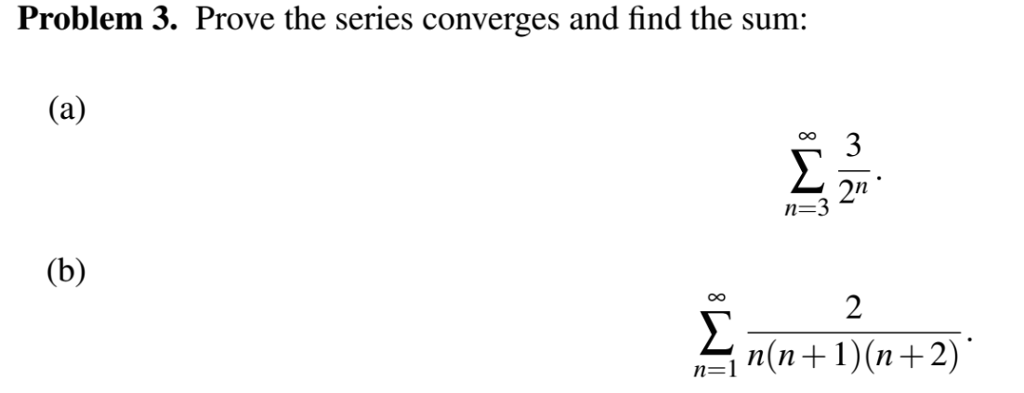
Solved Prove The Series Converges And Find The Sum Sigma Chegg Com
Q Tbn 3aand9gcq Tmftumer17bygo3e9h 7 Qscqrnw5niqrv Fr0rrgyg8v573 Usqp Cau
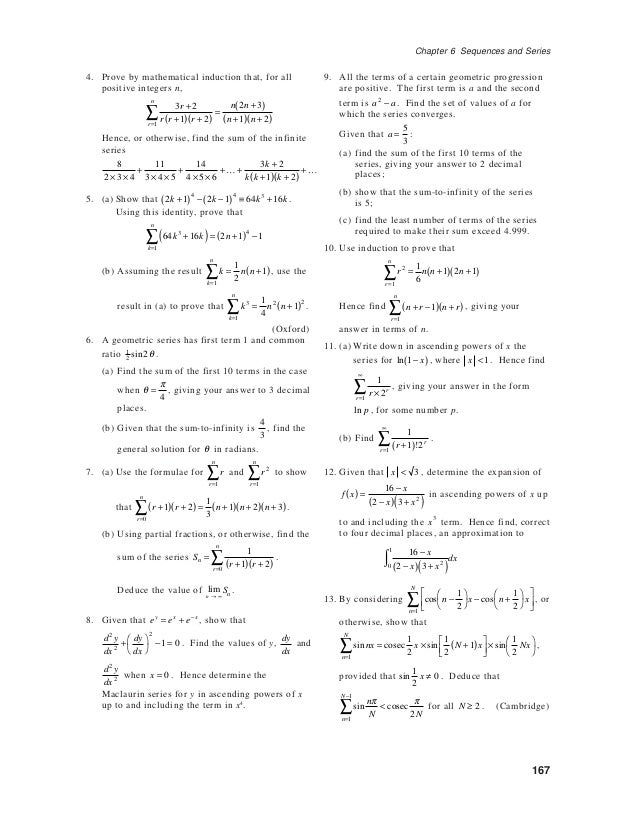
6 Sequences And Series Further Mathematics Zimbabwe Zimsec Cambridge

9 2 Areas And Riemann Sums
Prove That The Sum From 1 To Of 2n 1 N2 N 1 2 1 Stumbling Robot
Q Tbn 3aand9gcqh1smobrjmgaqovi14xlfng0tkamy5vtgkymrguybmvr Pyols Usqp Cau

A Limit Involving Binomial Coefficients Lim N To Infty 1 N Sum K 1 N 1 K N Choose K 1 K Frac12 Mathoverflow

Infinite Sequences And Series Ppt Video Online Download

Basel Problem Wikipedia

How To Evaluate The Sum Of N 2 N From N 1 To Infinity Quora

The Ramanujan Summation 1 2 3 1 12 By Mark Dodds Cantor S Paradise Medium
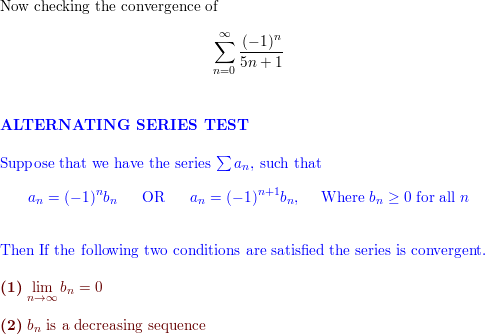
I Don T Understand This Explanation For Sum N 0 Infty 1 N 5n 1 Why Test For Convergence Divergence Again If The Limit Comparison Test Confirms That Both Series Are The Same Socratic
Link Springer Com Content Pdf 10 1007 2f978 3 7091 6146 3 12 Pdf
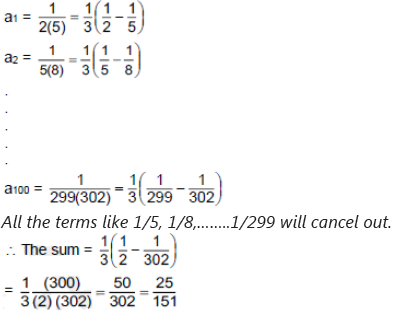
Tips And Tricks To Solve Sequences And Series Questions Advanced
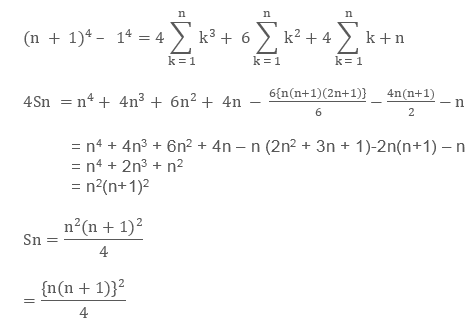
Sum To N Terms Of Special Series Study Material For Iit Jee Askiitians

Infinite Series
Q Tbn 3aand9gcqxlphgq12lqgwbnz7agyofw8z0v22lury2zhgxtt8nalyanmnq Usqp Cau

Proof By Intuition Done By Leonhard Euler Sum Of 1 N 2 Feat Max Youtube
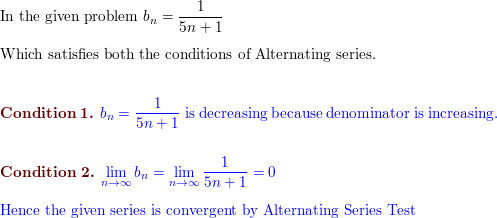
I Don T Understand This Explanation For Sum N 0 Infty 1 N 5n 1 Why Test For Convergence Divergence Again If The Limit Comparison Test Confirms That Both Series Are The Same Socratic

Mathematical Induction Proof 1 Sqrt1 1 Sqrt2 1 Sqrt N Ge Sqrt N Mathematics Stack Exchange
What Is The Sum Of The Series Math 1 1 2 1 3 1 4 1 5 Math Up To Infinity How Can It Be Calculated Quora
What Is The Sum Of The Series Math 1 1 2 1 3 1 4 1 5 Math Up To Infinity How Can It Be Calculated Quora

Basel Problem Wikipedia

Sum The Series 1 3 7 15 31 To N Terms Brainly In
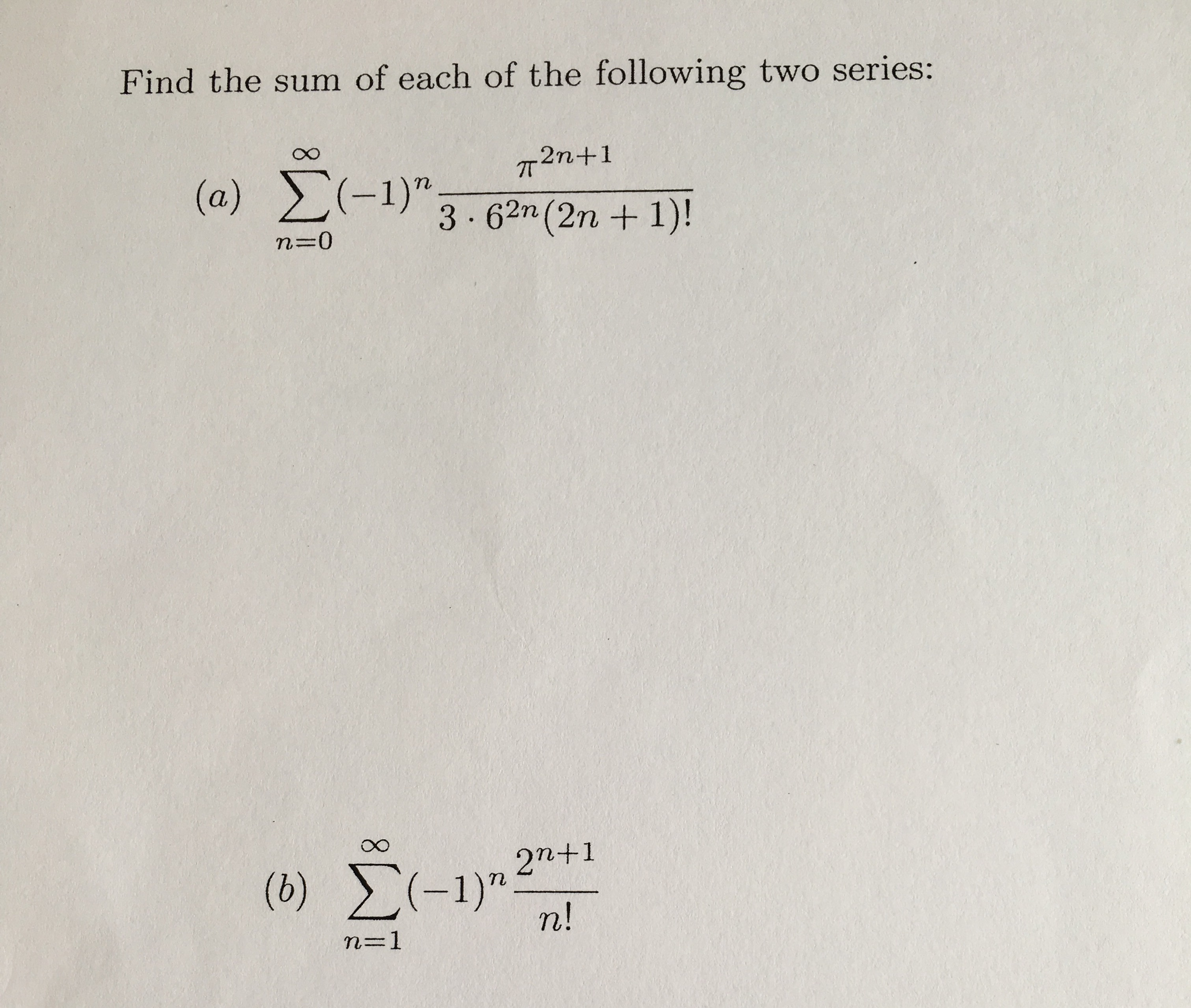
Solved Find The Sum Of Each Of The Following Two Series Chegg Com
Establish A Formula For 1 1 4 1 1 9 1 1 N 2 Stumbling Robot
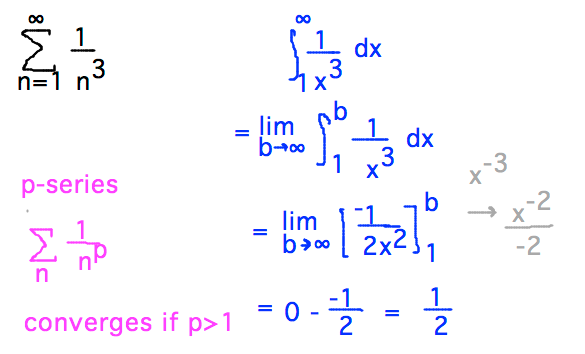
Geneseo Math 222 01 Integral Test

Convergent Divergent Geometric Series With Manipulation Video Khan Academy
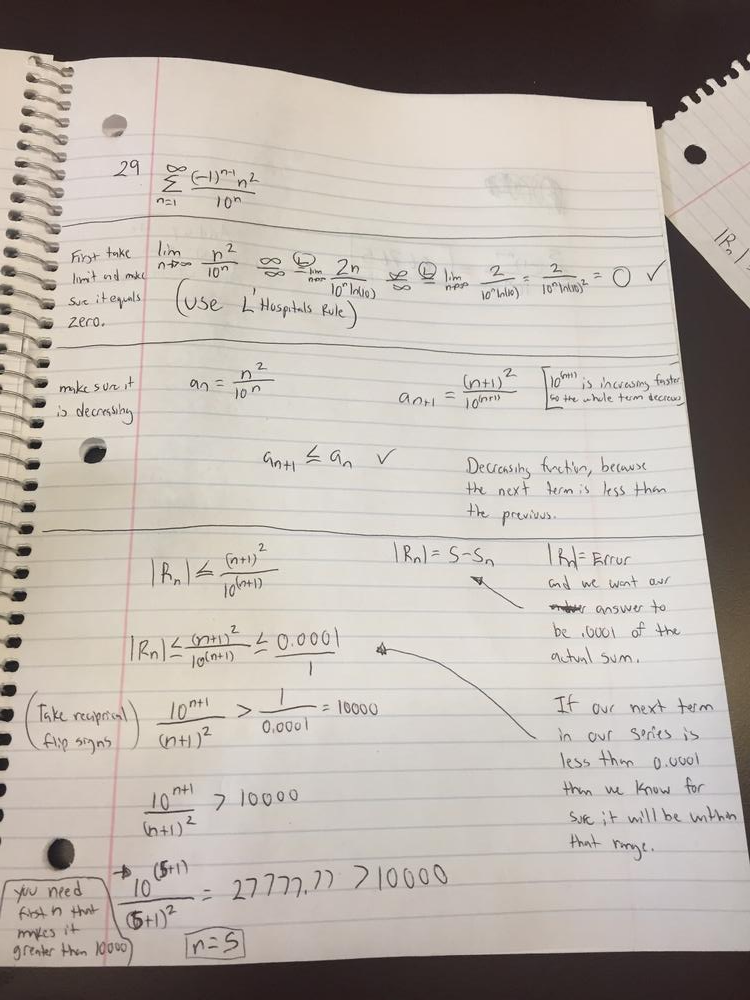
Approximate The Sum Of The Series Correct To Four Decimal Places N 1 1 N 1n 2 10 N Homework Help And Answers Slader

Using The Ratio Test For Series Convergence Video Lesson Transcript Study Com

Solved Apply Cauchy S Root Test To Series Sum Of 1 Log Chegg Com

Find Sum Of Series 1 3 5 7 9 11 Upto N Terms When Brainly In

Infinite Sum 2 N 2 3n N 1 To Infinity Youtube
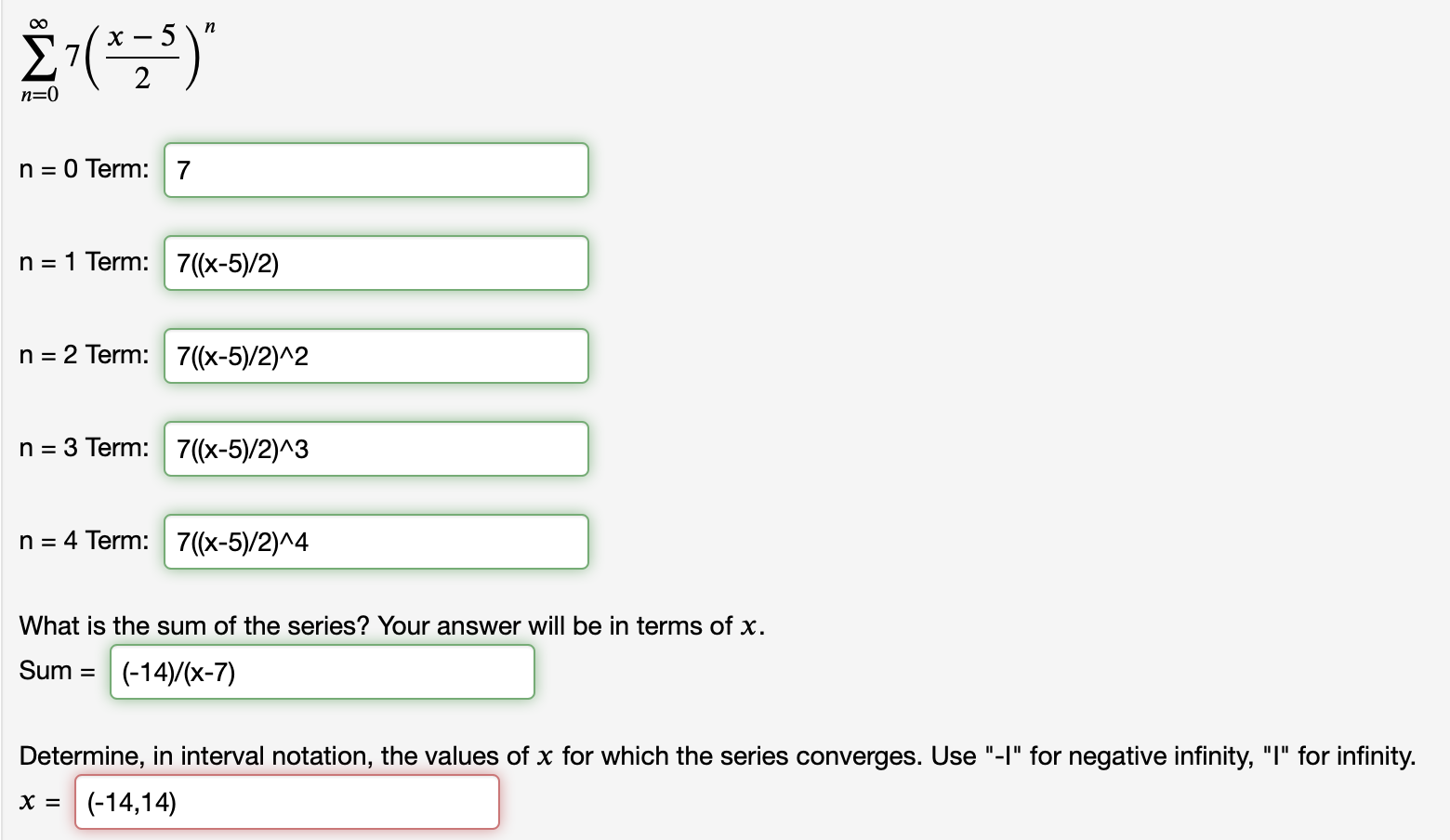
Answered S P St N 0 N 0 Term 7 N 1 Term Bartleby
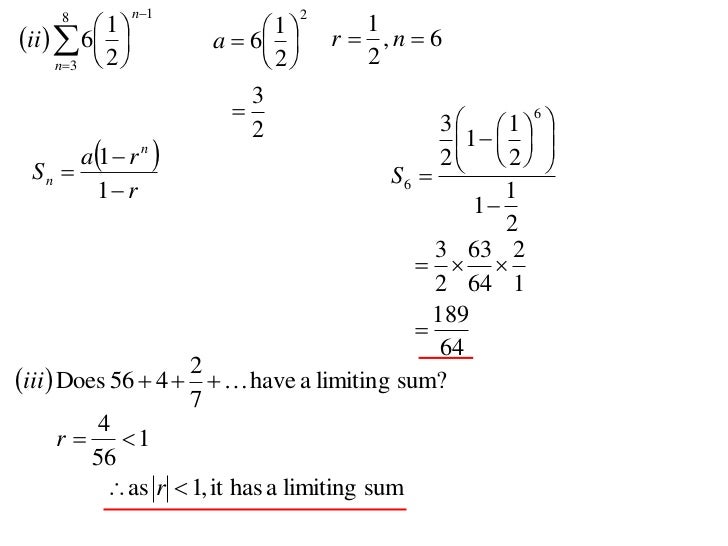
11 X1 T14 06 Sum Of A Geometric Series 12

Proving That The Series Sum Limits N 0 Infty 2 N Sin Frac 1 3 Nx Does Not Converge Uniformly On 0 Infty Mathematics Stack Exchange
How To Evaluate The Limit Of Math Lim N To Infty Dfrac 1 N 1 Dfrac 1 N 2 Dots Dfrac 1 2n Math Quora

Factorial Sums From Wolfram Mathworld
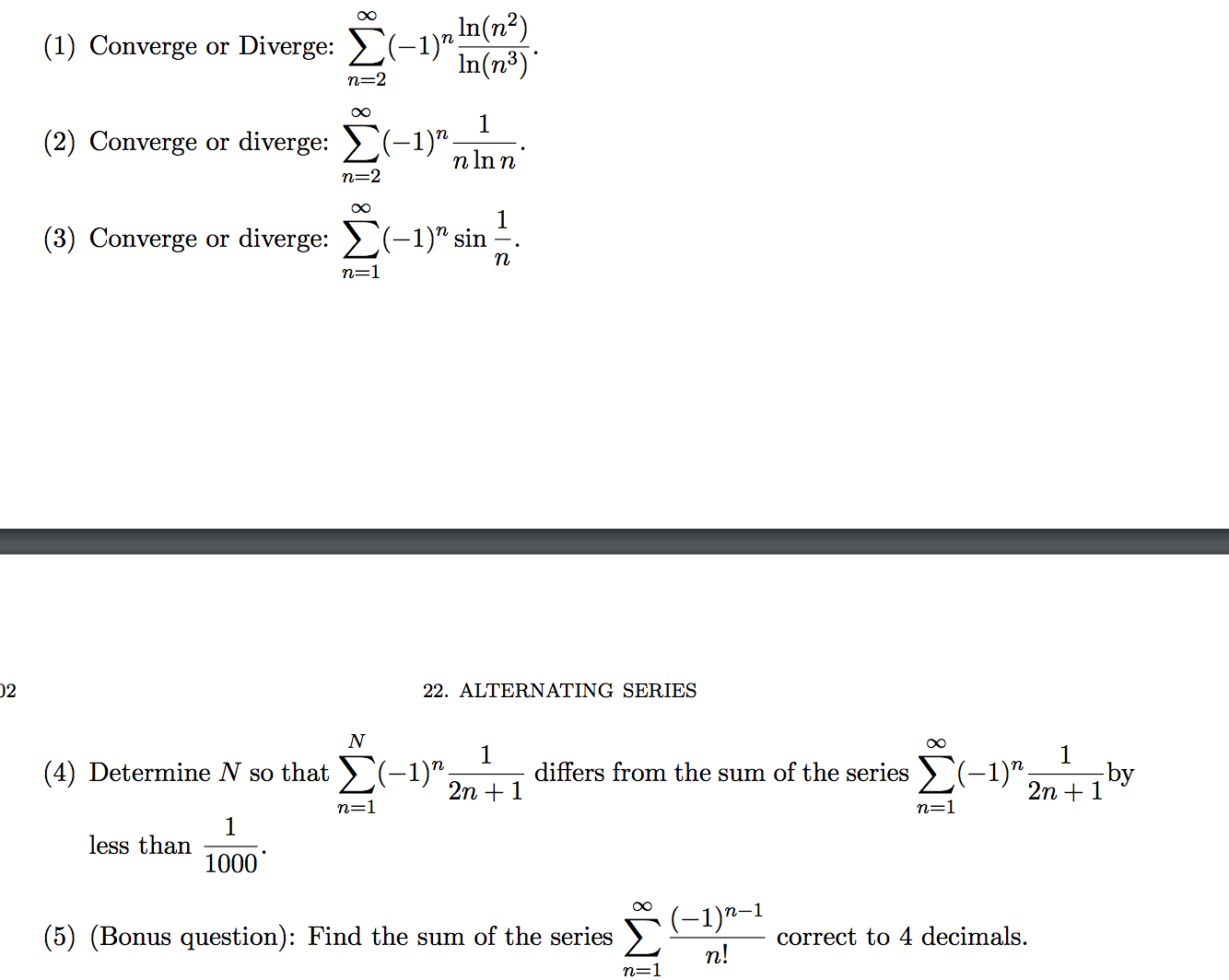
Solved Converge Or Diverge Summation N 2 Infinity 1 Chegg Com

Find The Sum Of First N Squares Difference Equation Approach Ft Max Youtube

If Sum R 1 N T R N 8 N 1 N 2 N 3 Then Find Sum R 1 N1

Does Sum 1 N 2 Converge Week 2 Lecture 11 Sequences And Series Youtube

Backslide Of Limit
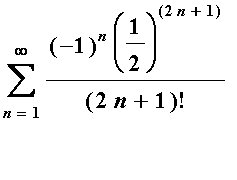
Lab14 Html

Infinite Series As Limit Of Partial Sums Video Khan Academy

15 Points Maria Is 12 1 2 Years Older Than Sal The Sum Of Their Ages Is 28 1 2 Which Of The Following Equations Can Used To Find Their Ages A 28 1 2

Sum Of N N Or N Brilliant Math Science Wiki
Link Springer Com Content Pdf 10 1007 2f978 3 7091 6146 3 12 Pdf
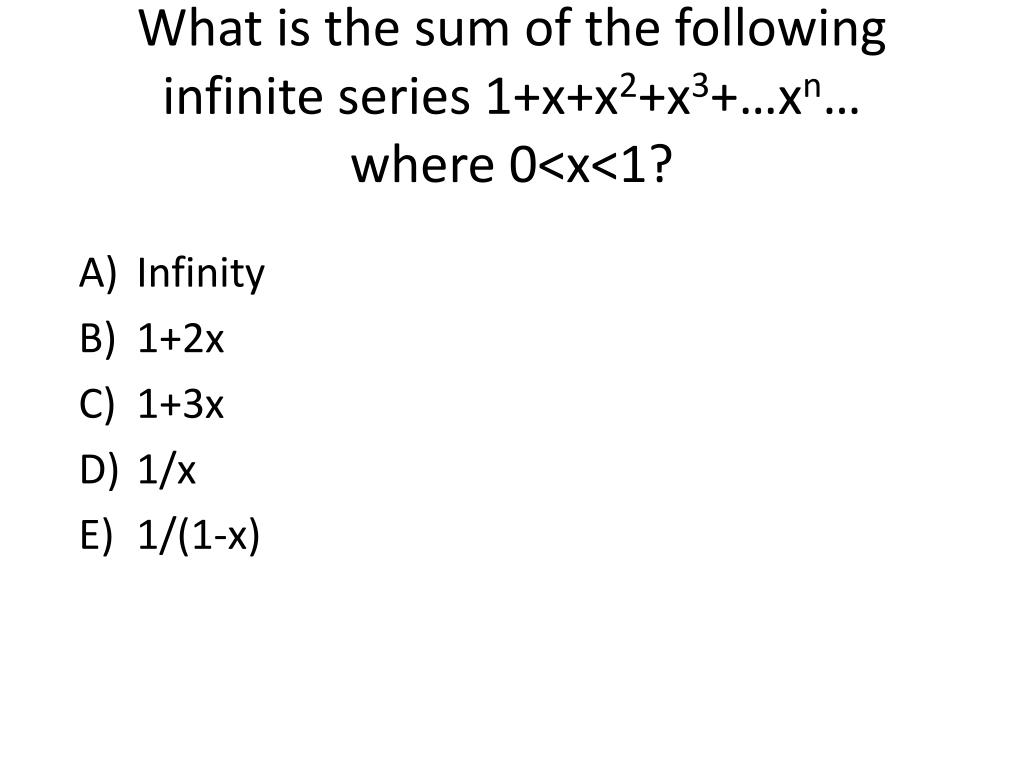
Ppt What Is The Sum Of The Following Infinite Series 1 X X 2 X 3 X N Where 0 X 1 Powerpoint Presentation Id

Mathematical Explanation Of Mathematica Summation Sum N 1 Infty Frac 2n 1 2n 2 Zeta 2n Mathematics Stack Exchange
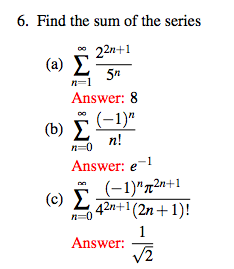
Solved Find The Sum Of The Series Sigma N 1 Infinity 2 Chegg Com
Www3 Nd Edu Apilking Math Work Old exams Ex3s17solutions Pdf
Q Tbn 3aand9gctfezlemn15ufmzmvbxoosov Oz Td Gz5uj0cfsjxavyylod Usqp Cau

Integral Test And P Series
How Does 1 2 1 4 1 8 1 16 Till Infinity Have A Sum Quora

Basel Problem Wikipedia

Infinite Series

Q1 Sum Of The Series 1 123 5 345 9 567 Till Infinity Q2 Find Value Of Log 1 1 N N Mathematics Topperlearning Com Qyqyjc
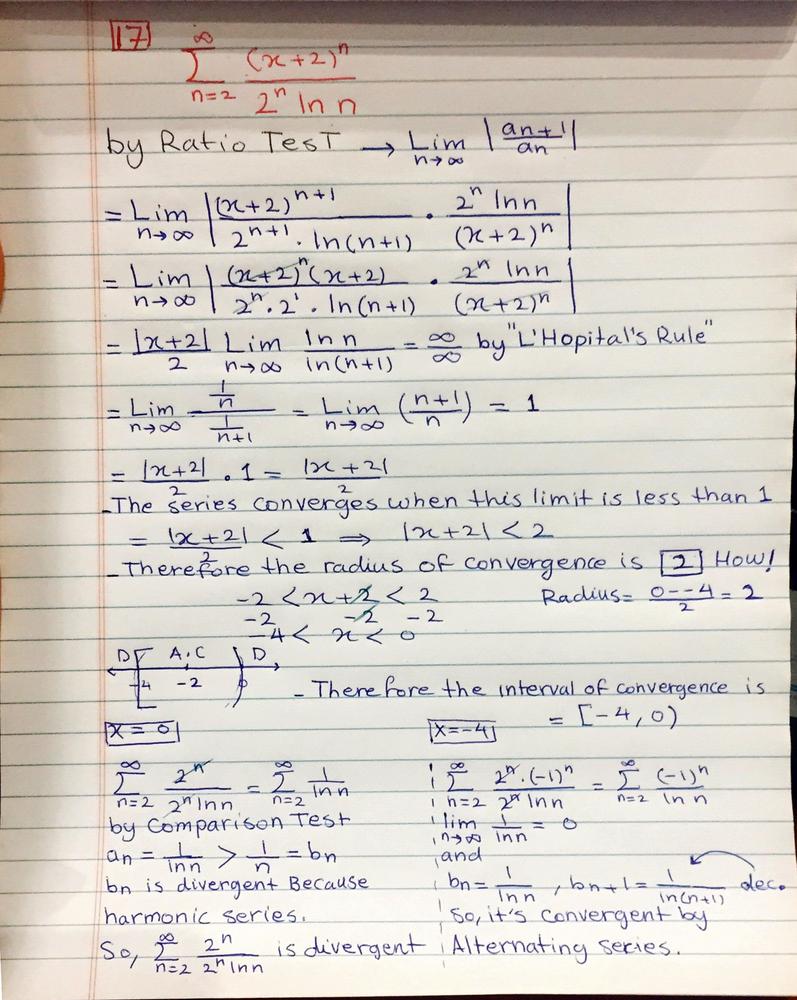
Find The Radius Of Convergence And Interval Of Convergence Of The Series Summation N 1 To Infinity 3 N X 4 N N 1 2 Homework Help And Answers Slader

Telescoping Series Finding The Sum Example 1 Youtube

Math Calculus I August 9 But First A Quick Review Ppt Download

Convergence Of Series Of The Form Sum 1 N X Mathematics Stack Exchange

Solved Consider The The Following Series Infinity Sigma N Chegg Com
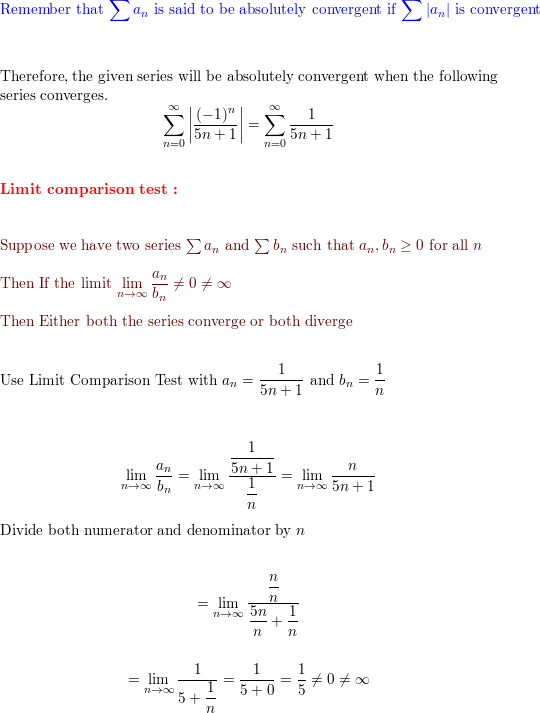
I Don T Understand This Explanation For Sum N 0 Infty 1 N 5n 1 Why Test For Convergence Divergence Again If The Limit Comparison Test Confirms That Both Series Are The Same Socratic
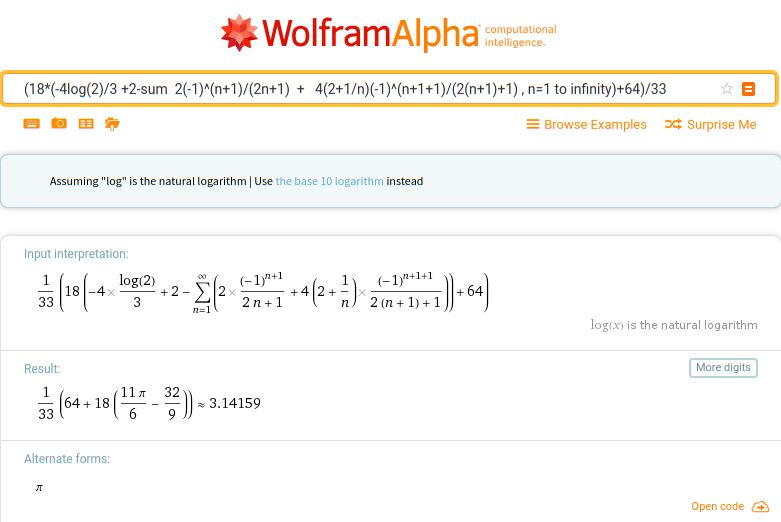
Litepresence Piday I Think I Just Rationalized Euler S Constant To Pi Assume Log Natural Pi 18 4log 2 3 2 Sum 2 1 N 1 2n 1 4 2 1 N 1 N 1 1 2 N 1 1 N 1 To Infinity 64 33 Has This

The Sum To Infinity Of The Series 1 2 1 1 N 3 1 1 N 2
Establish A Formula For 1 1 4 1 1 9 1 1 N 2 Stumbling Robot

Sigma N 1 Infinity 2 N 2 4n 3 Youtube

Determine Whether The Series Sum N 1 Infty 1 N 1 Frac 1 N N 2 Converges Absolutely Or Converges Conditionally Or Diverges Mathematics Stack Exchange
What The Sum Of 1 1 2 1 3 2 1 5 2 1 2n 1 2 Quora

How Can Math Sum N 1 Infty Frac 1 N Math Diverge But Math Sum N 1 Infty Frac 1 N 2 Math Converge Quora

Find The Radius Of Convergence Of Sum Of 1 N X N 12 N Ln N From N 2 To Infinity Study Com

Misc 23 Find Sum Of Series 3 7 13 21 31 Miscellaneous

Paradox 1 1 2 1 3 1 4 0 The Simpsons And Their Mathematical Secrets

Sum Of N N Or N Brilliant Math Science Wiki

If S1 S2 S3 Sp Are The Sum Of Infinite Geometric Series Whose First Terms Are 1 2 3 And Whose Common Brainly In
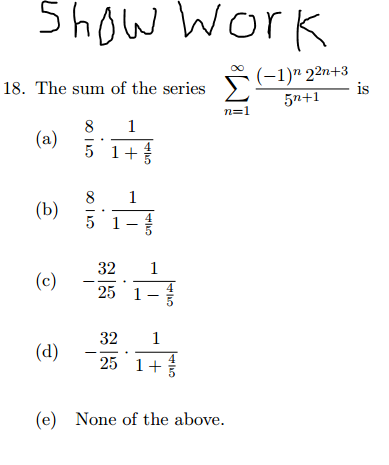
Solved The Sum Of The Series Sigma N 1 Infinity 1 N 2 Chegg Com

Basel Problem Wikipedia
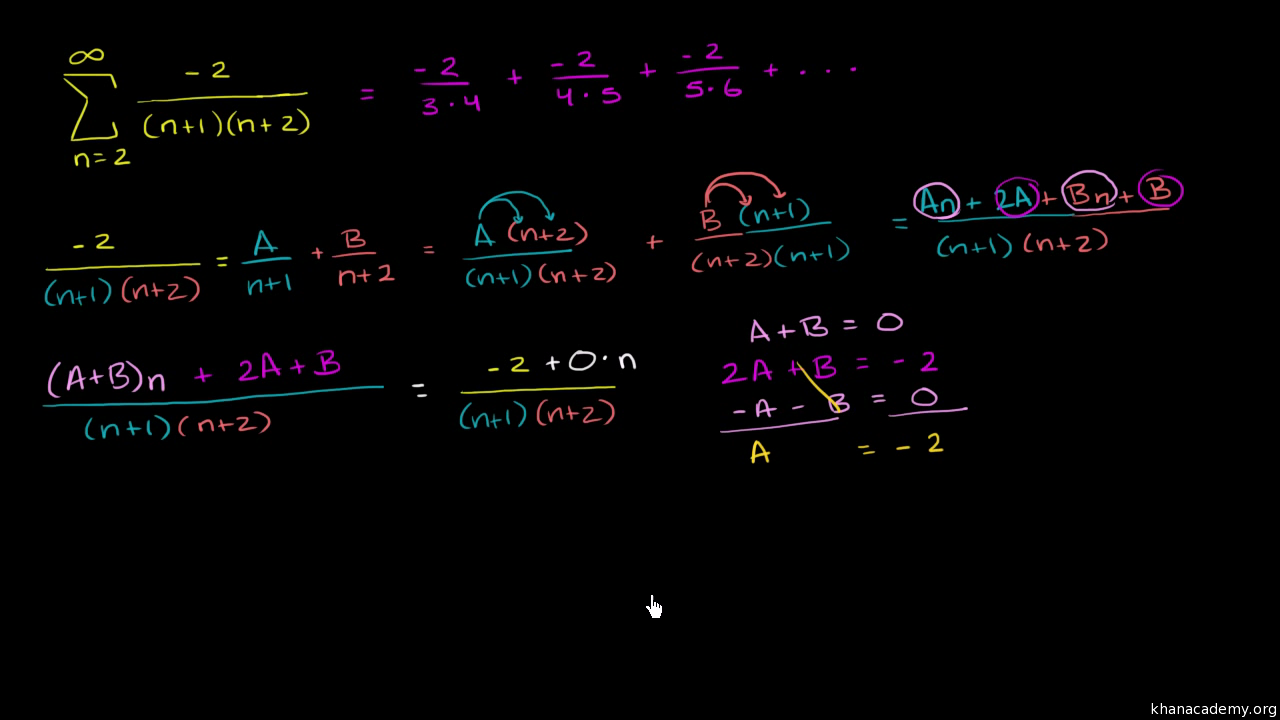
Telescoping Series Video Series Khan Academy

Example 19 Find Sum Of Series 5 11 19 29 41
Www2 Math Tamu Edu Glahodny Math152 Section 10 2 Pdf
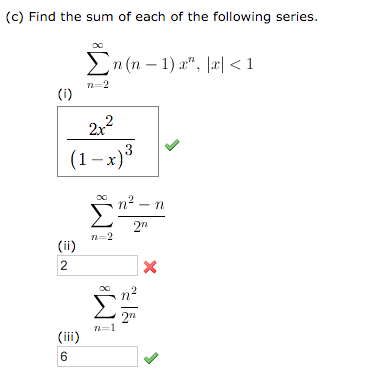
Solved Find The Sum Of Each Of The Following Series Inf Chegg Com
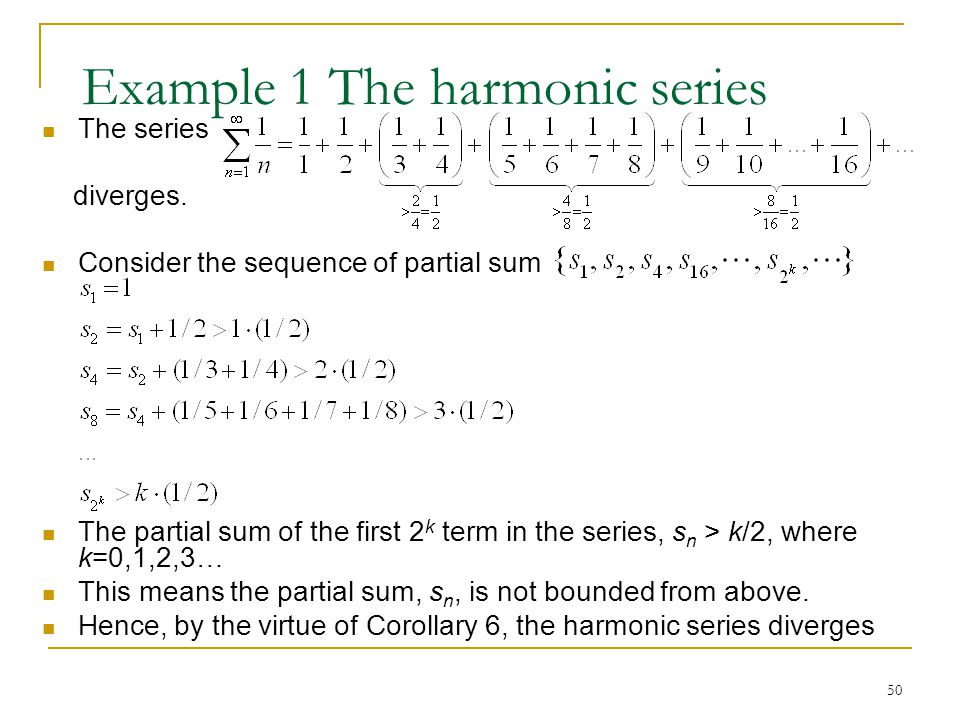
Infinite Sequences And Series Ppt Video Online Download
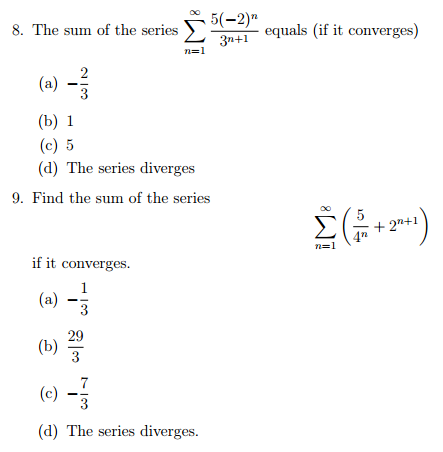
Solved 8 The Sum Of The Series Summation N 1 To Infini Chegg Com

9 2 Areas And Riemann Sums

Divergence Of The Sum Of The Reciprocals Of The Primes Wikipedia
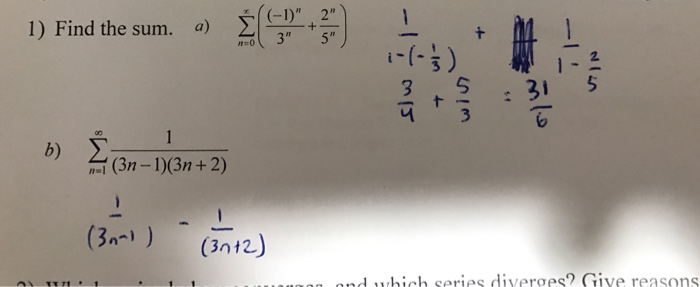
Solved Find The Sum Sigma N 0 Infinity 1 N 3 N 2 Chegg Com

Infinite Series
How To Evaluate The Sum Of N 2 2 N From N 1 To Infinity Quora
5 4 Comparison Tests Calculus Volume 2 Openstax
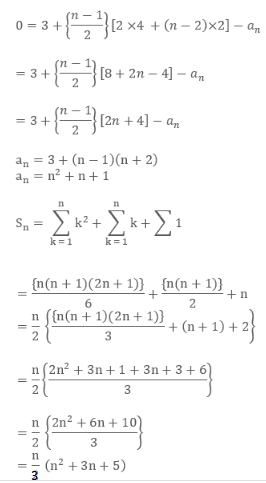
Find The Sum Of Series 3 7 13 21 31 Geeksforgeeks

Seminar Assignments Webwork Solutions Math 262 Mcgill Studocu

Paradox 1 1 2 1 3 1 4 0 The Simpsons And Their Mathematical Secrets

Divergence Of The Sum Of The Reciprocals Of The Primes Wikipedia

Alternating Series Test Video Khan Academy

Does 1 2 3 Really Equal 1 12 Scientific American Blog Network
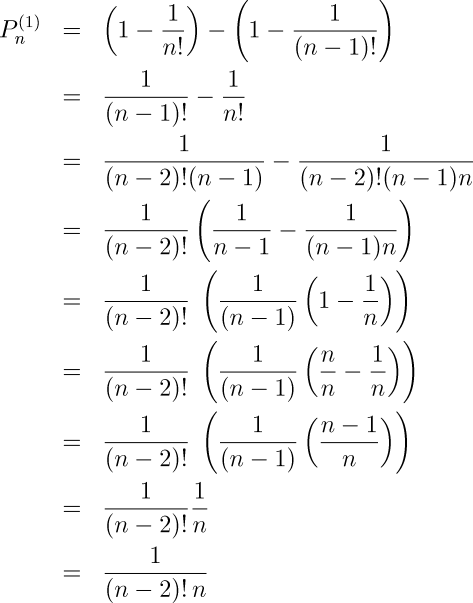
Sum Of Uniformly Distributed Random Numbers

Sum Of 1 N 2 Youtube



